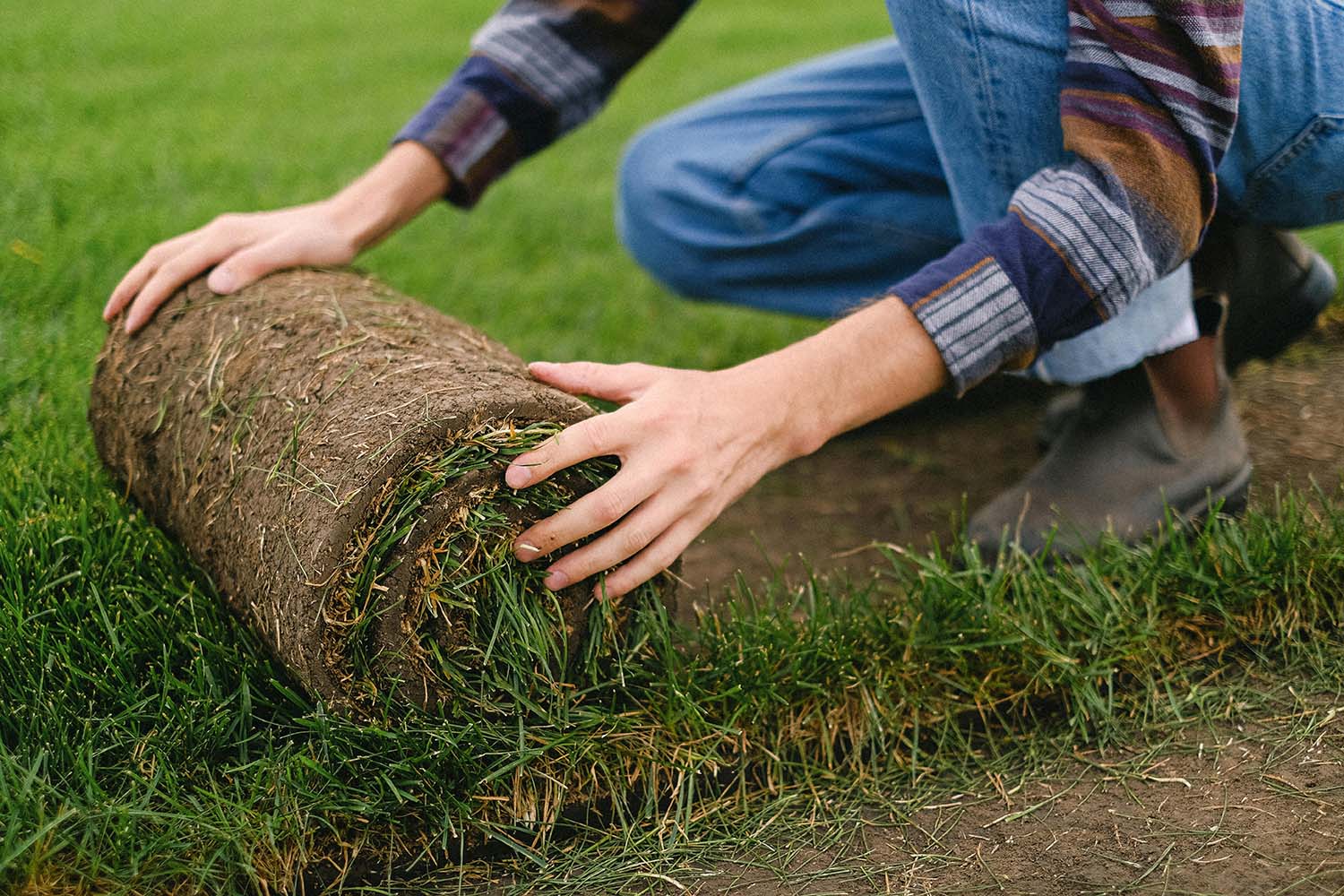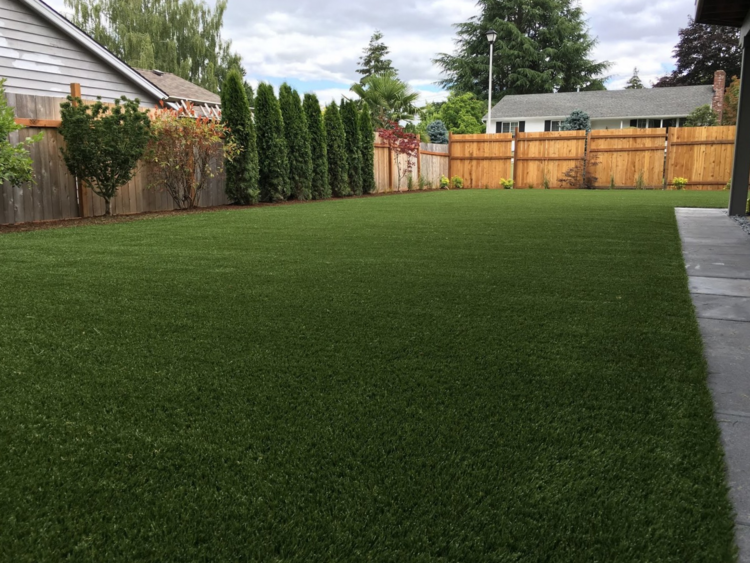Top-Rated Phoenix Turf Companies Focusing on Synthetic Grass Options
Top-Rated Phoenix Turf Companies Focusing on Synthetic Grass Options
Blog Article
Explore the Environmental Benefits of Opting for Artificial Grass Solutions
The fostering of synthetic grass options offers an engaging opportunity to attend to pressing environmental challenges. By dramatically decreasing water use and lessening the application of harmful chemicals, these choices not just advertise lasting landscaping but also protect neighborhood ecological communities. The lower carbon impact associated with lowered upkeep activities adds to a more lasting technique to land management. The implications of these advantages extend past mere conservation initiatives, raising inquiries regarding their lasting effect on environment preservation and general ecological balance. Discovering these dimensions exposes an intricate interplay worth considering.
Water Preservation Benefits
One of one of the most substantial benefits of artificial grass is its capability to preserve water. Traditional turf lawns need considerable watering, particularly in locations susceptible to dry spell or water constraints. In comparison, synthetic grass does not need watering, dramatically decreasing the overall demand for water resources. This attribute is particularly valuable in dry areas where water shortage is a pressing concern.
By removing the need for routine watering, synthetic grass adds to sustainable landscape methods and assists reduce the ecological impact of too much water consumption. The conservation of water prolongs to the decrease of runoff, which can lead to soil disintegration and river air pollution.
Additionally, the setup of synthetic grass enables municipalities and home owners to allocate water resources a lot more effectively, concentrating on essential uses such as alcohol consumption water and farming. The shift towards synthetic grass not only promotes responsible water usage however likewise straightens with wider environmental objectives targeted at protecting natural deposits.
As areas significantly prioritize sustainability, the water preservation benefits of man-made turf provide an engaging instance for its fostering in property and industrial landscaping jobs.
Lowered Chemical Usage
The shift to synthetic grass considerably decreases the dependence on chemical treatments typically utilized in all-natural yard maintenance. Standard lawn management typically involves the application of plant foods, pesticides, and herbicides to advertise development and control bugs. These chemicals can position dangers to human health, local wild animals, and the atmosphere, adding to soil and water contamination.
In contrast, artificial lawn removes the demand for these harmful compounds. By decreasing the release of synthetic compounds into the environment, artificial lawn promotes healthier dirt and water systems.
Additionally, the lack of chemical overflow connected with artificial grass installments assists secure neighborhood waterways from contamination, supporting water life and keeping biodiversity. Turf installation phoenix az. As areas progressively prioritize lasting practices, going with synthetic grass provides a sensible remedy that aligns with ecological conservation goals. With this shift, residential or commercial property proprietors can appreciate lush environment-friendly rooms without compromising eco-friendly wellness, leading the method for an extra lasting future
Reduced Carbon Impact

Furthermore, the installation of artificial turf can result in substantial water preservation. All-natural grass require significant quantities of water for watering, which not just contributes to the carbon impact connected with water extraction and therapy yet also stress regional water sources. In contrast, synthetic grass requires very little maintenance, needing no watering, therefore significantly decreasing water usage and its connected energy expenses.
Furthermore, the long life of artificial turf contributes to its reduced carbon effect. With a life-span of approximately 15 years or even more, the demand for constant substitutes is lessened, leading to less waste and lower power intake in production and disposing of traditional grass alternatives. Overall, synthetic turf presents a sustainable option for environmentally aware landscape design.
Environment Preservation
Environment conservation is an essential factor to consider in the discussion over landscaping choices, specifically when contrasting man-made turf to natural grass. Natural yard lawns typically require extensive upkeep, consisting of the usage of plant foods, pesticides, and herbicides, which can negatively impact local communities. These chemicals can leach right into the soil and rivers, hurting native plants and fauna and interrupting regional habitats.
On the other hand, synthetic grass offers a chance to decrease the eco-friendly footprint of landscape design. By choosing synthetic yard, house owners can minimize the interruption of all-natural habitats related to typical lawn treatment practices. Synthetic grass gets rid of the demand for damaging chemicals, therefore shielding nearby wildlife and keeping the honesty of bordering communities. Furthermore, the installment of synthetic grass can lead to visit this site right here the conversion of former lawn areas into even more biodiverse landscapes, such as pollinator gardens or indigenous plant locations, which can sustain neighborhood wild animals.
Ultimately, the change to find out man-made grass not just preserves water and minimizes upkeep efforts but additionally promotes a much more harmonious connection in between human tasks and the natural atmosphere, advertising habitat preservation while doing so.
Long-Term Sustainability
Long-lasting sustainability is a vital consider examining the benefits of synthetic lawn over traditional lawn lawns. Among one of the most considerable advantages of synthetic grass is its longevity; it can last approximately 15-20 years with marginal upkeep, whereas natural grass calls for frequent reseeding and substitute. This durability reduces the demand for consistent sources, such as water, plant foods, and pesticides, which are essential for preserving a healthy turf yard.
In addition, synthetic grass contributes to a reduction in carbon emissions associated with yard treatment equipment. Typical lawns often require gas-powered lawn mowers, trimmers, and blowers, every one of which add to air pollution. Turf installation phoenix az. In comparison, synthetic grass gets rid of the demand for such devices, advertising a cleaner atmosphere
In addition, the manufacturing of man-made turf significantly makes use of recycled products, enhancing its sustainability account. As suppliers adopt environmentally friendly techniques, the environmental footprint of synthetic grass proceeds to diminish.

Verdict
The fostering of synthetic grass options presents considerable ecological advantages, consisting of significant water preservation, lowered dependence on dangerous chemicals, and a lower carbon footprint. Fabricated grass help in preserving all-natural habitats by lessening land disruption and promoting long-term navigate to this site sustainability via the usage of long lasting materials. Jointly, these aspects underscore the possibility of synthetic grass to add positively to ecological wellness and use a practical choice to traditional landscape design practices in a progressively resource-conscious globe.
In comparison, synthetic lawn does not require watering, dramatically lowering the overall need for water sources. By minimizing the release of synthetic compounds right into the environment, synthetic turf advertises healthier dirt and water systems.
Furthermore, the installment of fabricated turf can result in significant water preservation. In comparison, artificial turf needs minimal maintenance, requiring no watering, thus considerably minimizing water use and its linked power prices.

Report this page